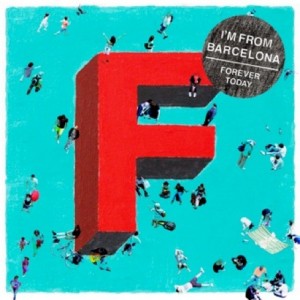Times New Viking – Dancer Equired
If there is be a perfect time for Times New Viking, it’s now. With the rise of so many different jangly pop and lo-fi bands, there could not be a more suiting atmosphere for this album to be released. Already equipped with a significant fan base, this band is here to show the rest of the music world that they are at the top of their game; more defined in their noise pop sound.
Heavily distorted vocals and echo-y guitars fill the first number, “It’s A Culture,” which sort of feels a little mismatched and out of order at its beginning, but develops into a fuzzy toe tapper, with Adam Elliot and Beth Murphy sharing the muddled vocal responsibility. It’s a bit of a foggy start, only to be contrasted by the second song, “Ever Falling in Love,” where the band seems to tighten things up a bit, wrapping overlapping vocals about a steady guitar riff.
A common problem with having an album largely based on short simple songs, is that that some of those little bits become throw-aways, and leave you wondering why they were included into the mess. Songs like this, in my opinion, come on the utmost of shortest jams, such as “New Vertical Dwellings,” on which everything is out of sync. For the most part, the drums don’t match the guitar, which doesn’t match the vocals, leaving the song to sound like a bunch of elements thrown together haphazardly. At only one minute and nine seconds, a song without substance may not seem like that big of a blemish, but it just makes one question the production of this album. Even though a band’s sound is lo-fi, doesn’t mean they can skimp on the quality of music they produce.
But Times New Viking doesn’t completely fail on this album; the tartness of “Fuck Her Tears” gives a taste of the classic sound that this band exemplified on their last album, while “Somebody’s Slave” slows things down for a gravelly slow burner that keeps you hanging on to the rolling drums. Following this is the weirdly distorted and emotional “No Good,” that is a simple and odd way to end the album.
Abundant with its carefree nature and brisk songs, Dancer Equired, feels just right for the increasingly hot weather and sunshine. Despite some less than satisfactory numbers, the fun of the good ones combine to outweigh the bad, leaving you with a pretty mediocre, yet enjoyable album.
[audio:https://austintownhall.com/wp-content/uploads/2011/04/Times-New-Viking-Ever-Falling-In-Love.mp3]Download: Times New Viking – Ever Falling In Love [MP3]
Dancer Equired is out now via Merge Records.













